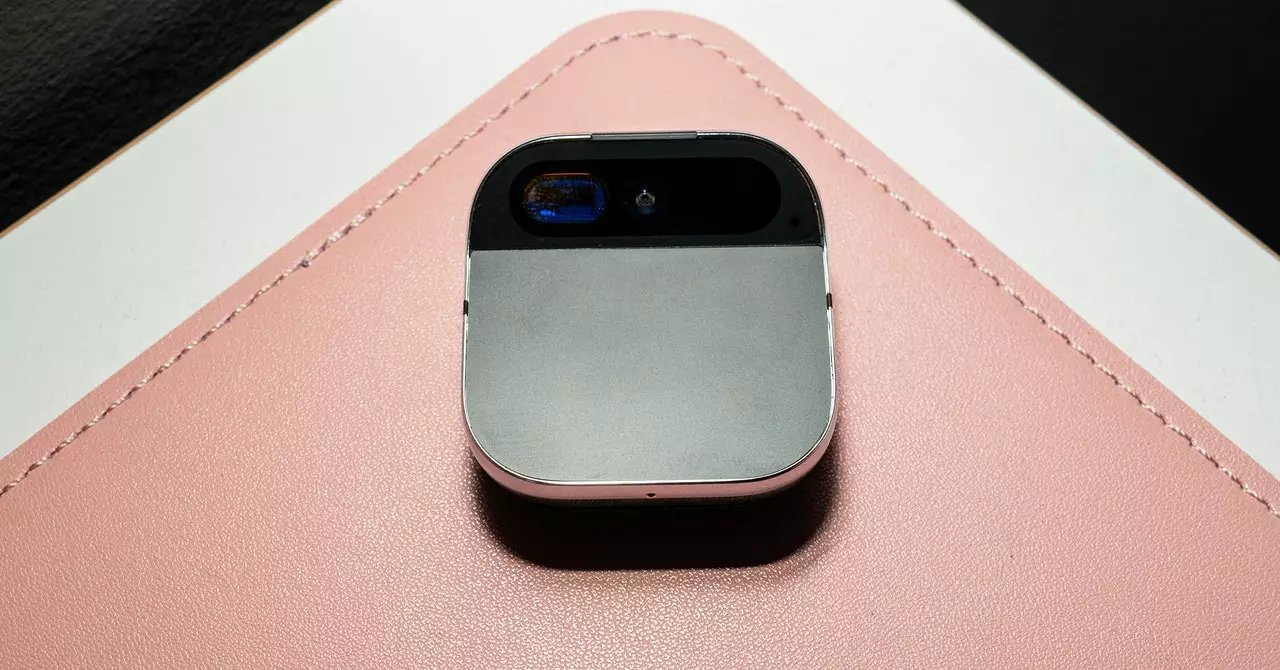In the ever-evolving world of technology, the rise and fall of innovations can often serve as a reflection of both consumer expectations and the realities of engineering. One of the latest spectacles in this saga is the Humane AI Pin—an ambitious project that promised to reshape how we interact with our devices. However, recent news reveals that this transformative vision is unraveling, leaving a trail of disappointment in its wake.
In a surprising turn of events, HP, a global leader in printing and computing technologies, is set to acquire certain assets from Humane in a $116 million deal. This acquisition, which includes over 300 patents, several core personnel from Humane, and the company’s Cosmos operating system, symbolizes a crucial juncture not only for HP but also for the broader landscape of tech innovation. The fact that HP is mainly interested in the intellectual property rather than the problematic hardware speaks volumes about the AI Pin’s troubled reception.
HP’s strategy appears to be centered around integrating Humane’s AI functionalities into its existing product line, aiming to enhance user experiences within their offerings. This ambition, though commendable, raises questions about whether HP can salvage what many view as a failed experiment. The AI Pin, once heralded as a revolutionary wearable with a built-in voice assistant, launched in 2024 to dismal reviews.
The Burgeoning Hopes and Subsequent Disappointments
Humane entered the tech scene with significant anticipation. The AI Pin was marketed as a cutting-edge device that would transcend traditional smartphones, boasting features like a laser-projected display and an AI assistant powered by ChatGPT. But as the product hit the market, the air of excitement quickly dissipated. User reviews lamented the device’s frequent overheating, erratic AI interactions, and a dearth of practical applications. Critics underscored that, rather than liberating users from their reliance on smartphones, the AI Pin simply added layers of complexity to their lives.
This scenario raises a fundamental question: in the relentless pursuit of innovation, are companies losing sight of functionality? Human needs remain constant, yet the solutions presented in products like the AI Pin often seem detached from those needs. This disconnect is a recurring theme in tech, where grand visions often falter under the weight of execution challenges.
With HP’s impending acquisition of Humane’s assets comes the cessation of the AI Pin’s operations. Effective February 28, 2025, existing units will be rendered nonfunctional, and refunds will be issued to those who purchased the device after a specific date. It’s a rather pointed admission of failure, showcasing the challenges that come with pioneering technology. For consumers, especially those who have invested in the promise of the AI Pin, this news brings not just disappointment but also raises vital concerns about the risk-taking nature of tech innovation.
The situation amplifies the importance of consumer feedback in shaping product development. When tech companies prioritize cutting-edge features over user experience, they risk compromising their reputation. Reliability remains paramount; otherwise, excitement can swiftly transform into disdain.
Going forward, the story of the Humane AI Pin should serve as a cautionary tale for tech innovators. It illustrates that the flash of new technology must not overshadow the foundational aspects of product development. Companies need to focus on creating robust, functional, and user-centric products if they wish to satisfy increasingly discerning consumers.
HP’s ambition to leverage Humane’s technology within its diverse product spectrum may offer a silver lining. Still, it remains essential that both HP and other market players heed the lessons presented by the AI Pin’s shortcomings. The integration of AI into existing products should aim not just to add features but to genuinely enhance user interactions and address practical needs.
In a landscape where consumer trust must be continually cultivated, a willingness to learn from past mistakes will dictate the success of future endeavors. As we look ahead, the goal should be to develop technologies that serve as meaningful tools in our daily lives rather than as sources of frustration. The Humane AI Pin, while it tried to usher in a new era of wearables, ultimately highlights the vital balance required in technological advancement—a balance that prioritizes both innovation and usability.


Leave a Reply